Traffic Law
Traffic Lawyers Australia
As traffic lawyers in Australia, we handle a diverse range of traffic-related cases in Australia, including but not limited to:

speeding offences

reckless driving charges

drink driving or DUI

driving with a suspended license

red light violations

seat belt and child restraint violations

parking offences

cases involving accidents or collisions
If you have been involved in any of these situations, whether your case involves minor violations or more serious charges, we can provide effective legal representation, tailored defence strategies, and personalised guidance to help you achieve the best possible outcomes for you

We’re Always Here For You
We are Available 24/7
We know that legal matters wait for no one and when your matter is urgent you need someone you can lean on. Here at Unified Lawyers our dedicated QLD Lawyers are available 24/7.
ONLINE
What is Traffic Law?
Traffic law in Australia is the legal framework that governs the operation of vehicles on public roads and highways. It has a set of rules and regulations designed to ensure the safe and orderly movement of vehicles, pedestrians, and other road users, while also maintaining the overall integrity of the transportation system. While there are overarching principles of traffic law that apply across Australia, specific regulations and procedures can also vary between different states and territories, here’s a list of traffic offences that we can help you with:
SERIOUS DRIVING OFFENCES
- Reckless or dangerous driving that caused the death of one or more people
- Reckless or dangerous driving that caused injuries
- DUI (Driving Under the Influence) or drug-related driving offences
- Driving with a suspended or revoked license
- Hit and run or leaving the scene of an accident
- Driving without due care and attention
NON-SERIOUS DRIVING OFFENCES
- Failure to yield or give way
- School zone violations
- Speeding violations
- Running red lights or stop signs
- Illegal or unsafe lane changes
- Using a mobile phone while driving
- Failing to wear a seatbelt or using improper restraints
- Driving an unregistered or uninsured vehicle
- Parking violations
- Driving without a valid driver’s license or learner’s permit
- Failure to obey road signs and signals
- Fatigue-related driving offences
- Transporting an unsecured load
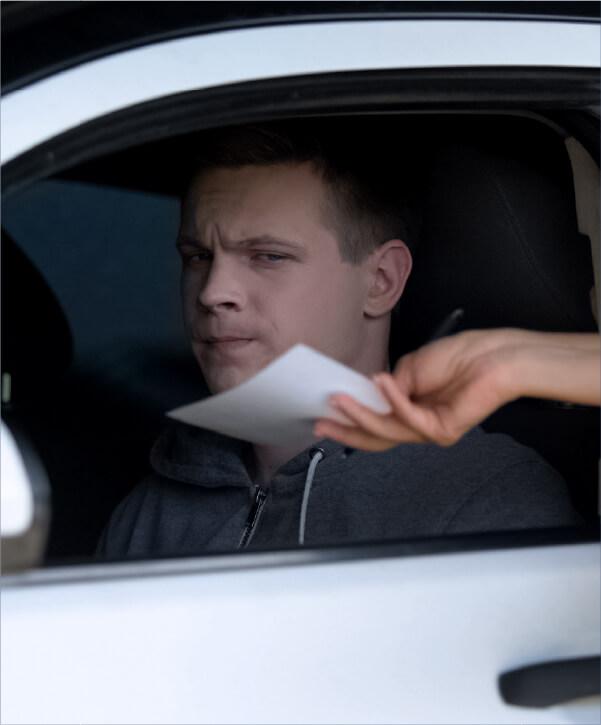
The seriousness of a traffic offence can vary based on factors such as specific circumstances, local laws, and potential consequences. That’s why it’s important to consult an experienced traffic lawyer if you find yourself in any of these situations.
Major Traffic Offences in Australia -
What You Need to Know
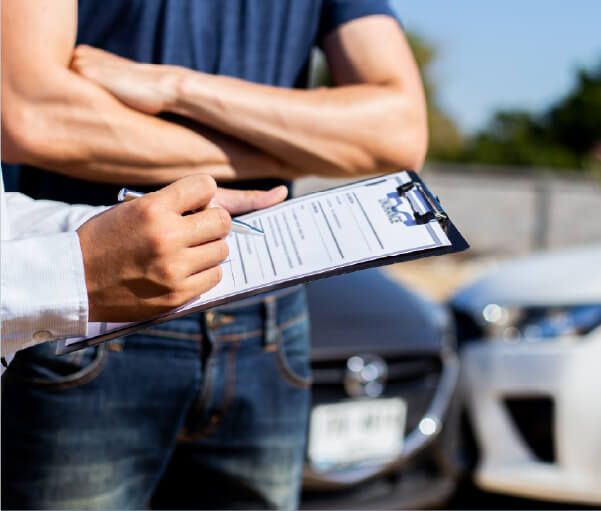
NEGLIGENT DRIVING
Negligent driving is when someone operates a vehicle without the expected care, risking harm to themselves and others. There are three levels of this offence:
- Negligent driving not occasioning death or grievous bodily harm (GBH)
- Negligent driving occasioning grievous bodily harm
- Negligent driving occasioning death
Penalties vary based on the level and prior offences, including:
- license suspension (minimum 12 months)
- imprisonment
- vehicle-related consequences like impoundment or plate confiscation
RECKLESS DRIVING
A reckless driving offence is when a person drives a vehicle on a road furiously, recklessly, or at dangerous driving speeds that could harm the public. Unlike negligent driving offences, it does not require proof that an injury occurred.
The penalties for furious and reckless driving depend on whether it is a first or subsequent offence. Some of the possible penalties are:
- Prison sentences of up to 12 months
- Loss of licence for at least 12 months
- Vehicle sanctions such as impoundment or confiscation of number plates
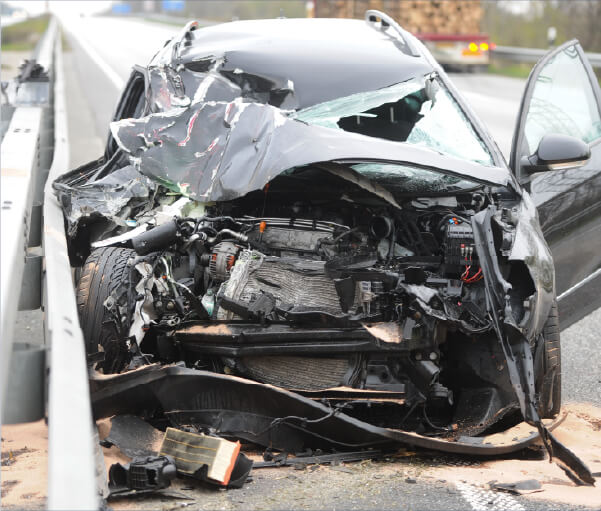

DRINK DRIVING OFFENCES
A drink driving offence or DUI is when a person drives a vehicle under the influence of alcohol or drugs to such an extent that they are incapable of having proper control of the vehicle.
The penalties for drink driving offences depend on whether it is a first or subsequent offence, and whether it involves alcohol or drugs. Some of the possible penalties are:
- Prison sentences of up to 2 years
- Loss of licence for at least 12 months
- Vehicle sanctions such as impoundment or confiscation of number plates
FAILING TO STOP AND ASSIST AFTER AN ACCIDENT
Not stopping and helping after an accident is a major offence in Australia, especially if someone gets hurt or dies. If you’re in a crash, you must stop, help the injured, and share your info with others involved. Not doing this is against the law and can lead to serious consequences.
The punishment for not stopping and helping depends on how bad the injury or death is.
For a first-time offence
- go to jail for 18 months, or both.
For a second time or more
- two years in jail, or both
- No license for at least a year and they could take your vehicle away
Not stopping after an accident is bad because it shows you don’t care about others on the road. It can also make it tough for the police and courts to handle the case properly, especially if you did something dangerous or wrong before the crash. So, it’s really important to do the right thing if you’re in an accident, both legally and morally.
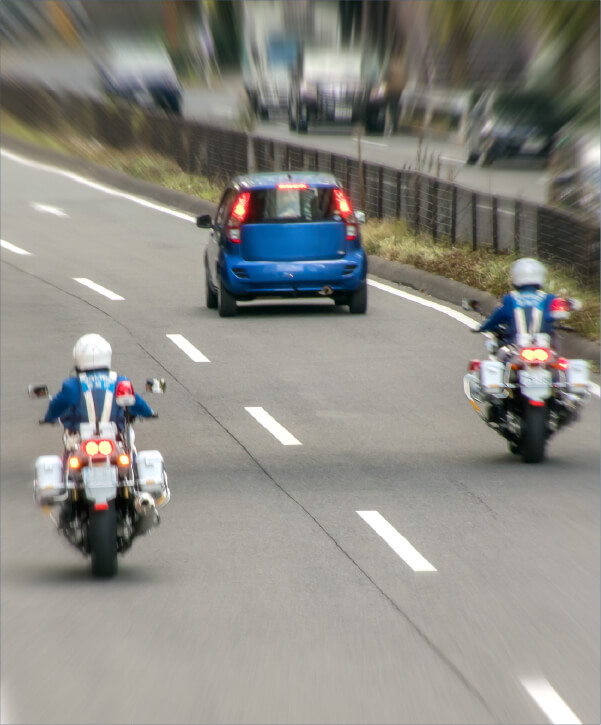
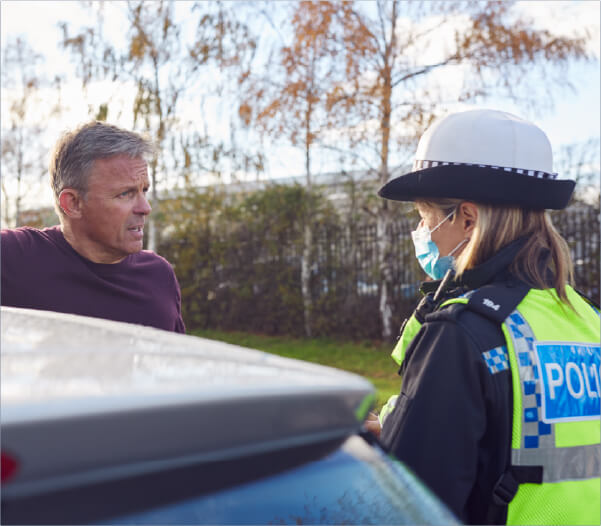
PREDATORY AND MENACING DRIVING OFFENCES
Predatory driving and menacing driving offences are what you will be charged with when you use your car to threaten or harm someone on the road. Below are their differences:
Predatory driving is when you chase or drive too close to another car, causing harm or fear of harm, and you want to hurt the person inside.
Menacing driving, on the other hand, is when you use your car to scare or threaten someone on the road, either on purpose or if it’s clear you should know your dangerous driving would scare them.
The punishment depends on if you did this before. You might get fined, go to jail for up to 5 years, lose your license for at least a year, and they might take your car away.
HOON OFFENCES
Hoon offences are types of reckless and dangerous driving behaviour that put you and other road users at risk. Some examples of hoon offences are:
- High-speed driving
- Burnouts
- Police pursuits
- Street racing
- Driving in a manner that causes a loss of traction
The penalties for hoon offences are severe and vary depending on the type and frequency of the offence. Some of the possible penalties are:
- Loss of licence for at least 3 months
- Prison sentences of up to 2 years
- Vehicle sanctions such as impoundment or confiscation of number plates
These are only some of the major traffic offences in Australia that you should know about. Keep in mind, however, that the rules can be different in various parts of Australia, and penalties can change based on the severity of your offence and where it happened.
If you find yourself in trouble with a traffic offence, consult our traffic lawyers so you can understand the potential consequences and explore options for resolution.
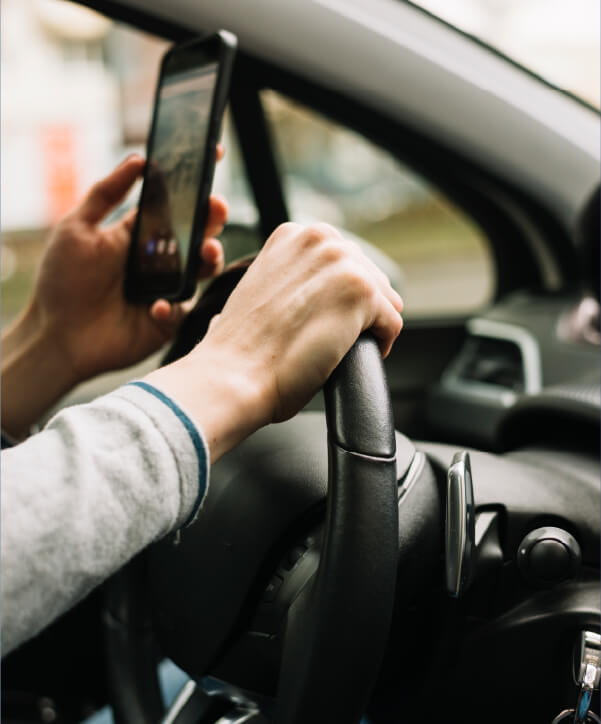
What We Guarantee
Experienced and Passionate Traffic Lawyers
Our team of traffic lawyers is highly experienced and dedicated to their profession. Passion drives us to go the extra mile for our clients, ensuring we provide the best possible legal representation and support throughout your cases.
Availability of Traffic Lawyers Right When You Need Them
Our law firm strives to be available to you when you need us the most. Whether you’re facing a legal emergency or have urgent questions, we aim to respond promptly and provide timely guidance and representation.
Matched with a Lawyer Specialising in Your Case
We don’t take a one-size-fits-all approach. You will be matched with a lawyer specialising in the specific area of traffic law under which your case falls. This ensures that you have an expert who thoroughly understands the complexities of your situation and can provide tailored solutions.
Transparent Communication with Clients
Our traffic lawyers prioritise open and transparent communication with our clients. We will keep you informed about the progress of your case, answer your questions promptly, and address any concerns you may have so you’ll feel comfortable and well-informed throughout the legal process.
Honest Upfront Fees
We believe in being upfront and honest about our fees from the beginning. We’ll discuss the fees during the initial consultation, so you have a clear understanding of the financial aspects of your case without any hidden surprises.
No-Fluff Processes
Legal matters can already be complex, and we don’t want to add unnecessary complications. Our approach involves cutting through the fluff and focusing on what truly matters: your case and achieving the best possible outcome.
How It Works

Step 1:
Get in Touch
When you contact our law firm, we’ll schedule a meeting to understand your legal issue better. We offer flexible meeting options including discussing your situation in person, over the phone, or via a video call.

Step 2:
Strategy & Representation
Once we know the details of your case, we’ll create a customised plan to address your needs. We’ll handle all the legal work, and negotiations, and represent you in court, keeping you informed along the way.

Step 3:
Resolution and Follow-up
Our main goal is to reach a favourable resolution for your case. We’ll work diligently to achieve the best outcome possible. Afterwards, we’ll take care of any necessary paperwork and follow-up steps.

We’re Always Here For You
We are Available 24/7
All of our legal services, including our traffic law legal services, are available Australia-wide and at any time. Dont leave your future to chance, talk to U Lawyers now.
Legal Resources
Frequently Asked Questions
If you’re pulled over for suspected drink driving, remaining calm and respectful to the officer is important. You have the right to remain silent and should avoid answering potentially self-incriminating questions.
Field sobriety tests are often voluntary, and you can politely decline. Seek help from traffic lawyers as soon as possible to understand your rights and navigate the legal process.
To contest a traffic offence, you typically need to follow the instructions on the ticket itself. This might involve requesting a court hearing. Collect any evidence that supports your case, such as photos, witnesses, or records. Consulting traffic lawyers can help you build a strong defence strategy and present your case effectively in court.
Consequences of a speeding offence can include fines, demerit points on your license, and an impact on your insurance premiums. Accumulating too many demerit points could result in a license suspension. It’s important to know the specific penalties in your area and explore options for mitigating the impact.
The process for license reinstatement varies depending on the reason for the suspension. It may involve serving the suspension period, paying fines, attending driving courses, and demonstrating compliance with other requirements. Consulting a traffic lawyer can help you navigate this process effectively.
You can still challenge a drink driving offence charge even if you blew over the legal limit. Breathalyser results can sometimes be contested based on factors like faulty equipment, improper administration, or medical conditions. Consulting traffic lawyers who specialise in drink driving offences can help you explore possible defences.
Keeping insurance rates from increasing after a traffic offence might involve attending defensive driving courses, negotiating with your insurance company, or exploring options to have the traffic offence reduced or dismissed. Talking to traffic lawyers can help you understand your situation’s best approach.
Yes, you can contest a traffic offence if you believe there was an error. Mistakes in issuing a ticket, inaccurate details, or procedural errors could weaken the case against you. Collect evidence that supports your claim and contact our traffic lawyers to determine the best course of action.
The demerit point system assigns points for various traffic offences. Accumulating too many points within a specific period can result in a license suspension. The number of points for each traffic offence varies, and some serious traffic offences may lead to an immediate suspension. It’s important to monitor your demerit points and understand the consequences in your jurisdiction.
While you have the right to represent yourself, hiring an experienced traffic lawyer can significantly improve your chances of achieving a favourable outcome. Our traffic lawyers have experience navigating the legal system, understanding complex laws, and building strong defence strategies tailored to your case.
Traffic offences stay on your driving record based on the traffic offence itself and the jurisdiction. In general, minor violations may stay on your record for a few years, while more serious traffic offences could remain for a longer period. Consulting a lawyer can provide you with specific information about your situation.
Traffic offences are generally less severe and are often considered civil violations. Examples include speeding, parking violations, and most cases of running a red light. Criminal offences related to driving, like drink driving or reckless driving, can result in more serious penalties, including fines, probation, and even imprisonment.
In some cases, completing a traffic school or defensive driving course may allow you to have a traffic offence dismissed or reduce the associated penalties. Eligibility and rules for this option can vary, so it’s important to consult our traffic lawyers to determine if this is viable for your specific case.
You can typically check your driver’s license status and any outstanding warrants by contacting your local Roads & Maritime Services or relevant government agency. Our traffic lawyers can also assist you in obtaining this information and guiding you through the necessary steps to resolve any traffic offence issue.

